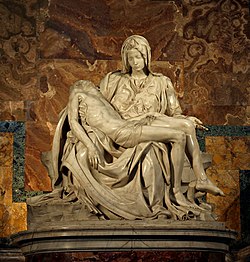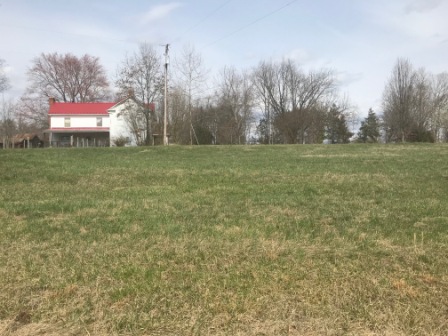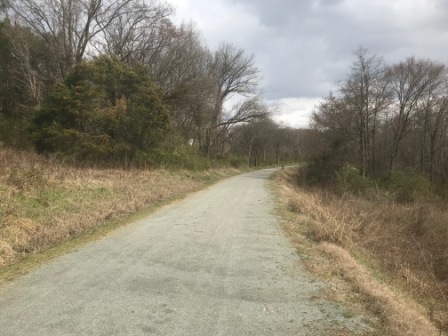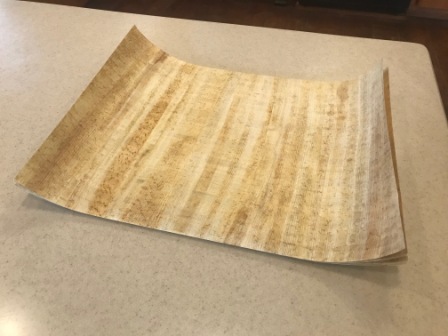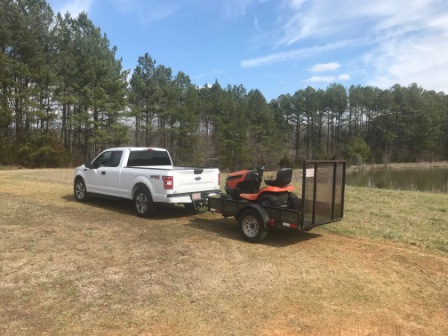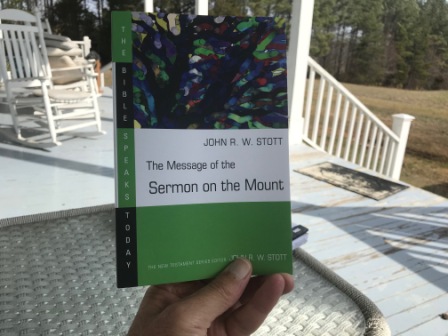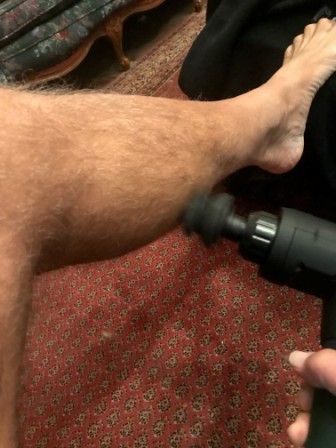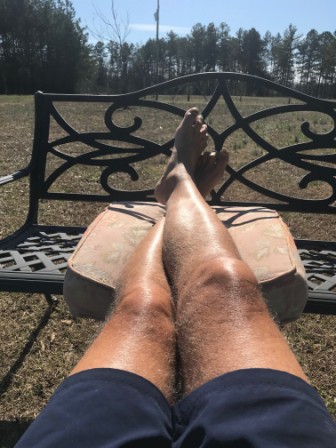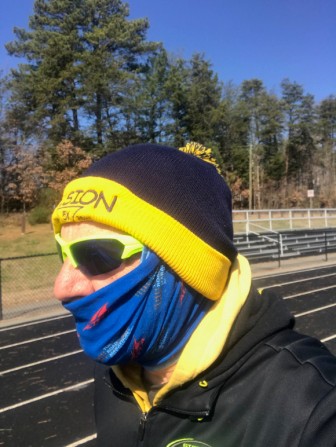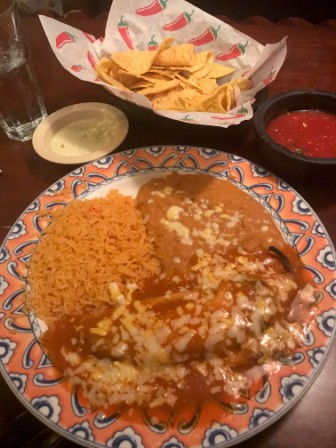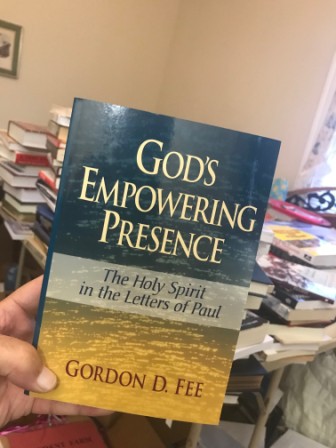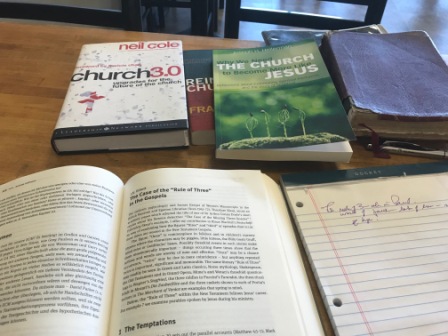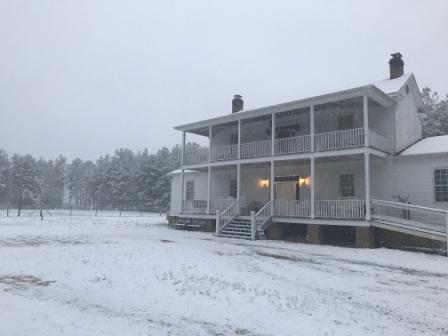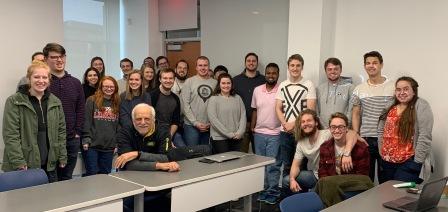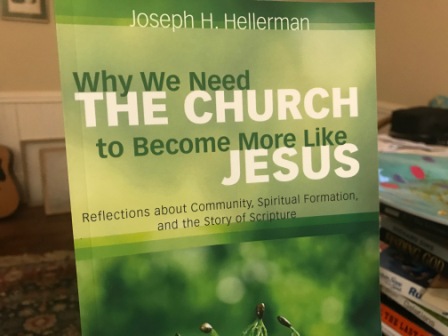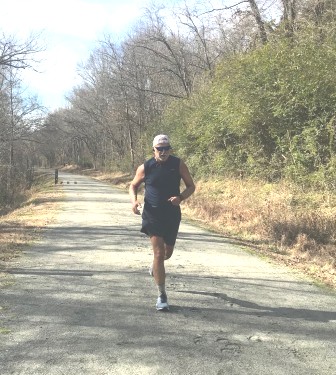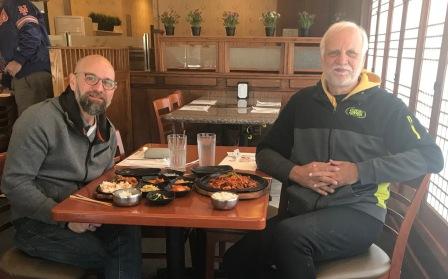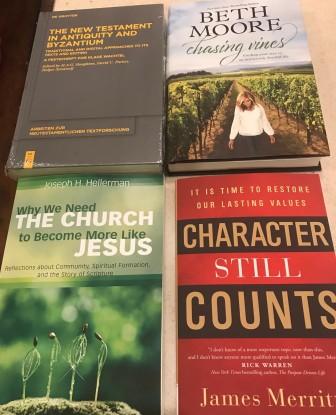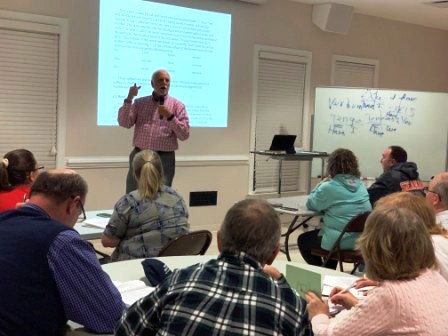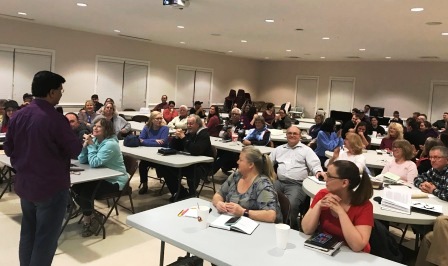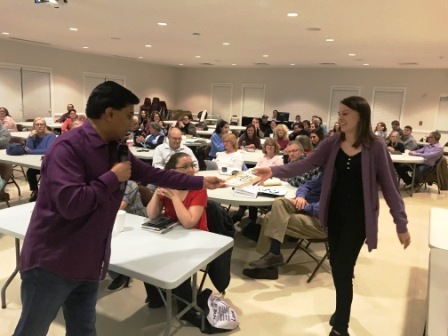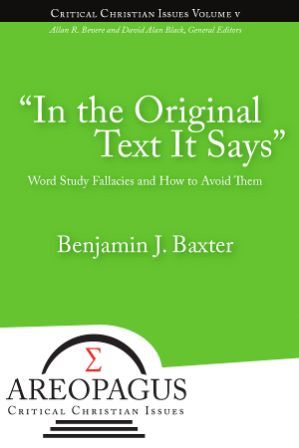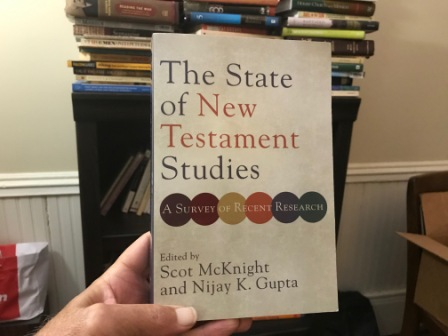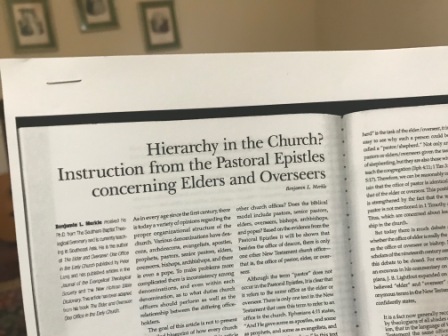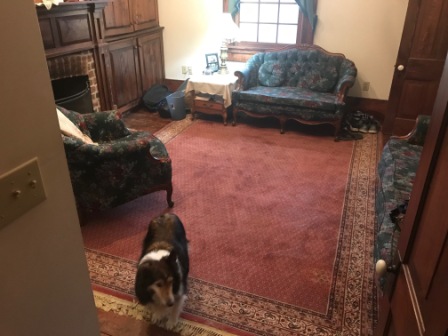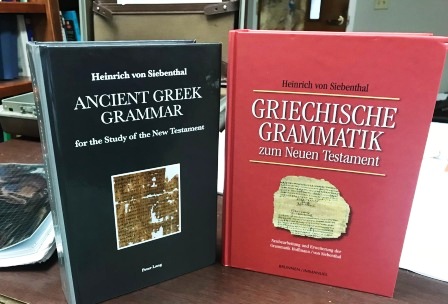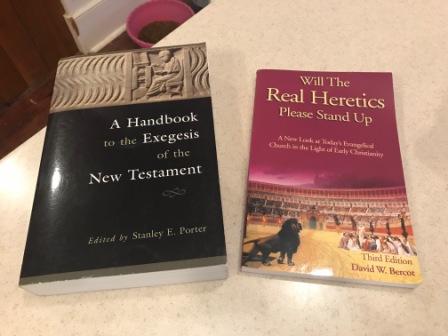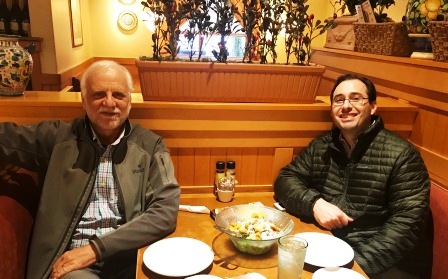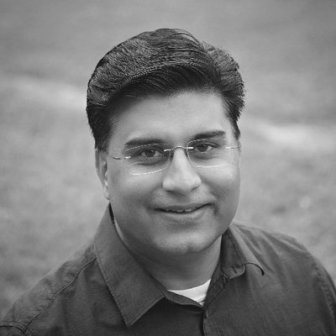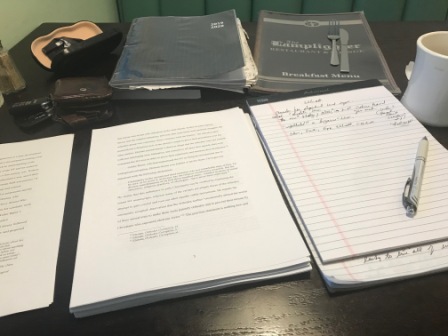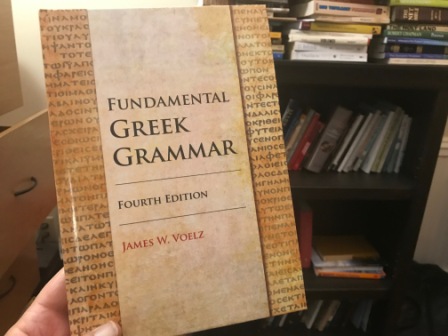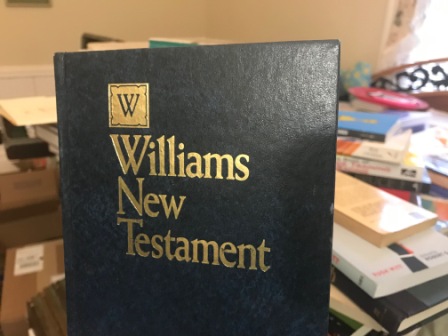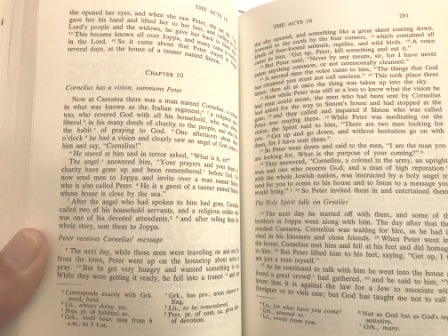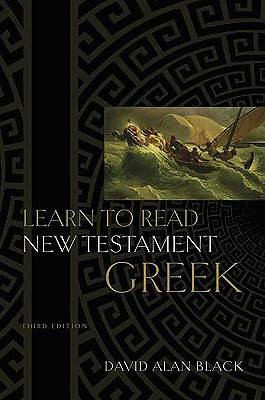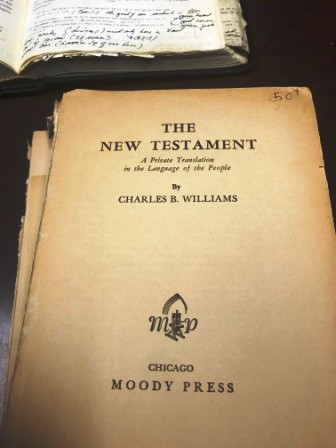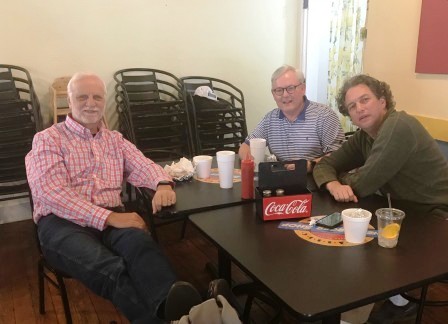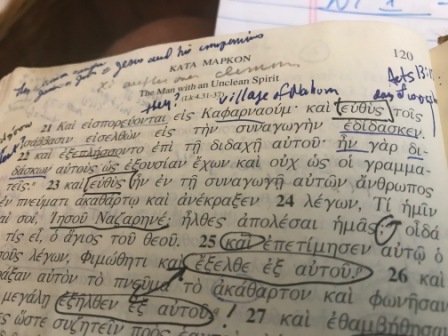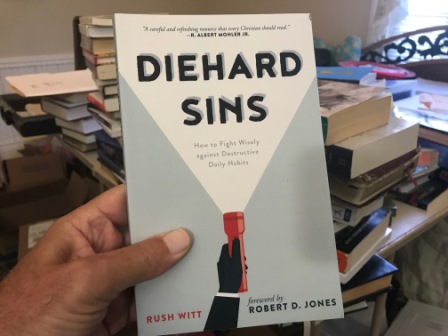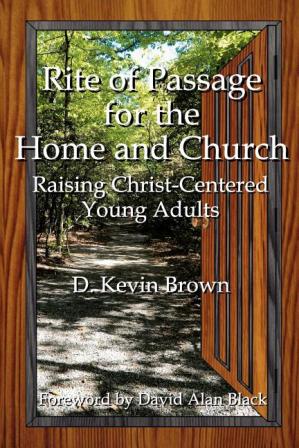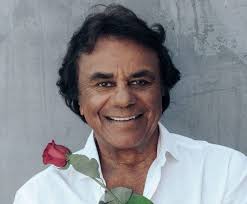October-June 2017 Blog Archives
|
|
|
||||||||
|
February 2020 Blog Archives Saturday, February 29 6:18 PM Congratulations to all the winners of today's Olympic trials! Aliphine, Molly, Sally, Galen, Abdi, and Jacob all punched their tickets to Tokyo today. I was pulling for Des, who came in fourth in the women's race. Afterwards she wrote: "Tried real hard today. Love that I get to do this for a living. Thank you Brooks Running for all the support. Thank you fans for all the cheers. Thank you competitors for pushing me to be my best." Folks, we're not racing anybody but ourselves in this thing called life. Every starting line is a chance to prove that our past does not determine our future. And guess what? You're not alone. We all share your fears and hopes. We will continue to run -- together -- to find some undiscovered part of ourselves. Run on, friends. 12:54 PM No running today because I'm resting up for a long training run tomorrow after church. The Olympic Marathon Trials are underway in Atlanta and right now Sarah Hall and Des Linden are leading the ladies pack. I'm guessing the men's winning time will be around 2:09 and the women's around 2:23. Go USA! 8:14 AM Who authored Hebrews? The fact is that the book is formally anonymous. But an anonymous author is not necessarily an unknown author. Read chapter 13 of Hebrews and you will see this plainly. The external evidence is also astonishingly clear. By the fourth century, the church possessed 14 epistles of Paul. Is the internal evidence strongly against this? Some seem to think so. I do not, and have laid out the real similarities between Hebrews and Paul elsewhere. Last week in class I spoke about the great humility of the apostle Paul, who could call himself "less than the least of all the saints" and the "chief of sinners." If in fact Hebrews is Paul's (even if an amanuensis is responsible for its final form), this would be additional evidence of Paul's self-abnegation. From the very beginning he does not want to intrude into his message. This is all very remarkable for anyone who produced such a masterpiece as Hebrews. Michelangelo made sure everyone knew he was the sculptor of the Pietā when he carved into the statue the words "Michelangelo fecit" ("Michelangelo made it").
One would think the author of Hebrews might be tempted to do the same. Yet that is precisely what our author did not do. His gaze, from the very first words of the letter, is directed toward the One who "is the reflection of God's glory and the perfect representation of His being, and continues to uphold the universe by His mighty word." In light of these facts, I think the Tyndale House Greek New Testament errs in placing Hebrews after Philemon. The THGNT claims to be a revision of Tregelles. Where did Tregelles place Hebrews? Where did Westcott and Hort? Where did Sinaiticus? Where did Vaticanus? Where did Alexandrinus? After 2 Thessalonians and before 1 Timothy, not after Philemon. (You might consult this chart.) And why is it preserved in this order? The evidence points uniformly in one direction. If Paul was indeed the one who authored this magnificent letter -- this "Cathedral of Christianity" -- I would hope we would all be perhaps more eager to give credit where credit is due. Once again: "Anonymous" does not mean "unknown." The four Gospels are all formally anonymous. Yet you and I call them Matthew, Mark, Luke, and John. Friday, February 28 6:06 PM It's very normal to get "weary in well doing" when studying Greek. This semester we just reached chapter 18 (out of 26) in our textbook. It's like reaching mile 18 in a 26-mile marathon. It's usually between miles 18 and 20 that runners "hit the wall" or "bonk" during a marathon. Been there and done that, believe you me. If your quest is to run a flawless marathon (or have nothing but joy and warm fuzzies in your Greek studies), you're talking to the wrong guy. The suggestions I'm about to make come from no expert, just a fellow runner (and Greek student) who's faced the exact same challenges you're facing. So, for what it's worth, here are some ideas for what to do when you "hit the proverbial wall" in your studies, based on my own experience of having signed up for (and finished) 16 marathons. 1) Be realistic. Train like you're going to hit the wall and be prepared for it mentally. You're going to struggle. It's going to hurt. Try to be as realistic as possible and acknowledge that it's going to be tough. 2) Get out of your head. Stop thinking those negative thoughts. Don't dwell on how hard everything is. If you have to, visualize a box in which you actually place all your negative mantras. 3) The other side of #3 is this: Keep your eye on the goal. When you think you want to quit, a judicious dose of realistic optimism can help. During the final miles of a marathon I always promise myself a big steak after the race (or some other "bribe"). As for Greek, remember that the study of the New Testament in Greek will change your life. It's worth all the pain and suffering in order to get to that goal. 4) Give yourself permission to quit -- but only after the next mile (or the next chapter). Cut interim deals with yourself. "I'll decide about dropping out at the next aid station." What I've found is that when I reach that aid station and grab some water and walk for a while, I end up saying to myself, "Well, Dave, you've made it this far. Why not just finish it up?" In short, you can prepare for hitting the wall by training for it. Then, when it happens, treat it the same way you did in training. Maybe you'll not only beat the wall, you'll round-house kick it to the curb. 2:52 PM The pastures are turning green. Haying season is almost upon us :-)
2:45 PM Today's 5-mile run.
12:18 PM UPS just delivered these Egyptian papyri sheets. (I'm teaching textual criticism this week.)
Then my grandkids helped me feed the animals. Then I sold my old mower.
Good day so far. Off for a run! 10:40 AM How true.
My Achilles Heel? Lack of "time off." 10:34 AM "Some books should be tasted, some devoured, but only a few should be chewed and digested thoroughly" (Sir Francis Bacon). This is one of them:
I've required it in my NT class this semester. 9:10 AM Tomorrow's the day, ladies and gentlemen! The Olympic Marathon trials in the great city of Atlanta! Top seeded in the men's category:
The big question: Who will be wearing Nike? Also, the course conditions: It's gonna be hot, humid, and hilly. NBC will live stream the event tomorrow. Can't wait! 8:42 AM From the archives: Greek Exegesis of Mark: More Than Mere Theory. 8:40 AM A note on the translation of Rom. 14:19:
We are so scared of verbal aspect today we overlook the point made by Williams: The Greek definitely suggests continuous action. Then why not translate it that way? 8:28 AM From my AM reading: "Eye has not seen nor ear heard .... But God has revealed them to us by His Spirit" (1 Cor. 2:9-10). Godworld is closed to human wisdom, no matter how highly educated we are. The world of the Spirit is foolishness to the human heart apart from the Holy Spirit who has been shed abroad. This means that the humblest Christian can enter this world if he or she comes God's way. Students: Never forget that only the Spirit of God can give us perception beyond the world of the senses. Don't make Greek study a false idol! 8:20 AM There are only two certainties in life: taxes, and tax returns.
7:14 AM The church is the living presence of Jesus in the world. The purpose of the church is to make the fact that Jesus is present in the world visible and tangible. 7:12 AM "A pastor without a Bible is a pastor without authority." -- Thabiti Anyabwile. 7:10 AM "Don't socialize the gospel, gospelize the social. Bring the gospel into every social problem." -- Robert Smith. 7:05 AM "I am convinced that the churches in the Majority World have far more to teach us than we have to teach them." -- Michael Green. Thursday, February 27 9:58 PM You know you're a runner: When every time you see someone running while driving you critique their form and stride. When you haven't purchased t-shirts in years. When you have more pairs of running shoes than other kinds of shoes. When you can easily convert kilometers into miles. When most of your bedroom drawers are filled with running clothes. When you can't end a run at 9.9 miles. When you arrange your travel schedule around races. When every other day your body screams at you, GET UP AND RUN! When your clothes are so sweaty you have to wash them every other day. When you have mastered the snot rocket. When after a race you check every 5 seconds to see if the results have been posted. When you can't drive by a New Balance store without stopping. When you check your car's odometer to see how far 26.2 miles is from your home. When you run! 7:40 PM FedEx delivered this today. Oh my. It gives the most amazing massage.
In the past few years I've gotten massages to help relieve muscle soreness after a race. But this little guy will do the trick just fine. 7:18 PM Have you noticed? We Christians love to debate each other. Controversy has long marked the church of the Lord Jesus Christ. It's due partially, I believe, to our fallen human nature. Then there's the noetic effects of sin: none of us ever thinks perfectly logically. In the 1960s in Hawai'i, the debate was over the Jesus Movement, of which I was a part. I was told real men didn't wear long hair, as I was doing at the time. For my part, I immaturely flaunted my liberty in Christ. Then came the controversy over Pentecostalism. Schisms over the "baptism of the Holy Spirit" took place frequently. After I moved to California to attend Biola, the debates focused more on lifestyle issues. Could a Christian smoke or sip wine? Could they wear certain kinds of swimwear? I recall at the time that the body of Christ in SoCal was distinguished not so much by unity but by its passionate disagreement on many topics. Into this fray appeared Chuck Swindoll, who was pastoring in Fullerton at the time. It's not too sardonic to say that his chapel messages were always a breath of fresh air. Chuck always seemed to possess that rare combination of dead seriousness about discipleship and a grace-filled attitude toward others. Nowadays, I listen to Chuck's weekly messages at Stonebriar Church. Last week's message is titled "Extending Grace to Let Others Be." The text is Romans 14. If you're currently caught up in ecclesial controversies, I might encourage you, with an open Bible, to spend some time in that portion of Romans and maybe even spend 45 minutes listening to one of America's most knowledgeable yet grace-filled evangelical pastors. His sermon has four points, all based on the text of Romans 14. He concludes with three practical applications. They are: 1) Concentrate on what encourages harmony and builds up others. 2) Remember that sabotaging fragile saints hurts the work of God. 3) Determine where you stand, then follow your convictions. But let Paul have the last word. If what he says in Rom. 14:14-19 ever became our own conviction, I think the church would be much more attractive to a lost world than it currently is.
5:45 PM In case you're interested, I just updated and revised my definition of church. You can read it here. I've been a Christian for 60 years and a Greek teacher for 44. And yet I had never taken the time to attempt to define what has, for these many years, been a huge part of my life. During this time I've had the privilege of teaching in many different countries. This breadth of experience has bred in me certain convictions. In my essay I would like to share some of them with you. I'm grateful to all of you who wrote to me with your suggestions, and especially to my students at Southeastern who have discussed my views with me at length. Most of all I want to thank the Lord Jesus Himself. Without Him, the church would not exist. 12:04 PM Today's workouts:
7:20 AM On deck today: Cook breakfast (Well done, Cooking Warrior). Farm chores (farming is crazy work but it is good work). Clean the house. Workout at the Y (you have no idea how much I need this). Run at the track. Finalize my essay on church (still sussing out the details). Take Sheba for a walk. Sign up for Who's Your One? Start memorizing 1 Thessalonians in Greek. Remove my dead toenail (gross, I know).
Be kind, be me, and love Jesus. 7:10 AM Emotions are part of our humanness. Don't reject them. Lay them before the Lord. Discipline your emotions as you would your mind. Today I don't feel like cleaning the house. But the house needs cleaning. And clean it I will. We are given the choice, day by day, to choose to do what is right instead of following our feelings. It is an error to think that we can do nothing but act on our strong feelings. 7:08 AM Emotions often can get in the way. You mean, "Be filled with brotherly affection" even when I don't feel like it? 7:07 AM It is always possible to obey the will of God. Carrying it out, however, is not easy. 7:06 AM From my Bible reading this AM:
Wednesday, February 26 6:10 PM Discussed in class this week: 1) The numerals in Greek. 2) New Testament Semitisms. 3) The doctrine of the church. 4) Evangelistic preaching. 5) The four Gospels. 6) The baptism of the Spirit. 7) Two-termination adjectives. 8) Haddon Robinson's classic Biblical Preaching. 9) Loving our neighbors. 19) Jesus' ridiculously good "others first" paradigm. 11) The Great Commission. 12) The Spirit-filled life. 13) Realistic expectations about sanctification. 14) Healthy boundaries. 15) Spiritual gifts. 16) The ending of Mark. I love it. Like, love it. Can you say "Teaching is fun"? Know what else I love? Students who challenge you. Who push you to be better. Whose souls ache for truth. Who want to solve every problem on Earth. Who want Jesus and trust Him to lead them. He's the only constant in life. So let's lift Him high. Monday, February 24 6:40 AM On deck: More on the third declension in Greek class; the myth of adolescence in NT class; plus discussing my book Using New Testament Greek in Ministry. Also, final prep for my 1 Thessalonians spring break class that starts in two weeks. My goal is threefold: to exegete the biblical text as accurately as possible, to relate it to modern life, and to be interesting! The Christian community at Thessalonica was vibrant. Just think: a congregation numbering maybe 45, meeting in Jason's home, all of them serving, working, evangelizing. An active faith if you will. Nobody can emerge from a study of this book with a privatized faith. The Christian life is to be lived out in community. Yet increasing numbers of believers are retreating into their Twitter accounts. Towards the corrective to this unhealthy trend, the book of 1 Thessalonians gives us a strong and steady stimulus. To my Greek students at Clearview: Please don't forget to check out our Greek Portal often. We are updating it constantly. If you get bored or tired with my lectures, there are numerous alternatives on YouTube, people using my grammar, including Rob Plummer (of Southern Seminary) and Jacob Cerone (who is currently completing a doctorate in NT in Germany). I am extremely grateful for all your hard work to this point, and I trust that a gracious God may grant you the power to continue. There is no limit to what He can do. Sunday, February 23 8:15 PM Another superb Greek class at Clearview tonight. I counted 70 in attendance. Each person has the conviction that God still speaks through what He has spoken, and that nothing is more important for the life, health, and growth of the church than that Christians should hear what the Spirit is saying to them through His ancient yet ever modern Word. No wonder Paul so often ends a portion of his writings with a doxology: to Him be the glory for ever and ever, Amen! Time to prepare my meals for the week and then chillax!!! 4:14 PM Sunbathing in February? Yup.
8:04 AM Please note that serving the Word and serving tables in Acts 6:1-4 are on par with each other. Both are needed in Christian formation. Luke gives no impression that one is more godly or necessary than the other. Note, too, that serving tables (i.e., community-building) is a work of the Holy Spirit. The men chosen for food distribution were "full of the Spirit and wisdom." Nothing less than Spirit-empowerment makes possible Christian work of any kind. Do we realize that all are reliant on the same Spirit to do our work for the good of others, whether we are pastors, secretaries, or accountants? Saturday, February 22 8:15 PM Got a good friend who's running his first marathon next month. If you're new to the marathon distance, here are a few tips/observations: 1) First off, good on you. Lacing up and getting to the starting line is half the battle. 2) In the marathon there's a place for runners of every speed. Don't expect to run the entire race hard. The distance is just too far. Find your rhythm, then stay relaxed. Enjoy the experience! 3) There's only one thing that bugs me about newbie runners: so many stop abruptly in the middle of the course. I can't tell you how many times I've almost rear-ended people doing that. If you want to walk, first move to the side and raise your hand to signal to those behind you that you're about to walk. Whether you're fast or slow, everyone should be considerate of others. 4) For most people, their only goal for their first marathon is to finish. I agree 100 percent with this philosophy. My running motto is very simple: "I trained, I tried, I finished." I may be near the back of the pack but I'm healthier and happier because I tried. 5) Be sure to prep for the race. This usually involves running several shorter races before you run your first marathon. The 5K is the best place to start, then move up from there to the 10K, the 10 Miler, the half marathon, and then the full marathon. I ran 8 half marathons before I attempted my first full. That made a huge difference in the way I enjoyed the race. 6) Consider doing the Galloway run/walk method because it will save your knees and keep you fresher the longer you run. Stick to the right side of the road and start toward the pack of the pack so that all the zingers can go ahead. 7) It's really, really, really important to start off at a conservative, realistic pace. Success in a race doesn't just come from effort. It comes from efficiency. People can only push themselves so hard for so long. Try to be the most efficient runner you can be out there. Pay attention to your body. If you need to take a walk break, do it. 8) When you get to the water tables, don't stop immediately but proceed to the last tables where the crowds are smaller. Once you're clear of the tables, move to the edge of the road and drink at your leisure. 9) When you approach the finish line you will feel a very strong urge to run as fast as you can. This is where many running injuries occur. Cross the finish at an even pace, and when you do cross, don't stop but just keep moving through the finish chute. There are others behind you who are finishing, too. 10) After the race, say a prayer of thanksgiving and then -- celebrate! The only question you need to ask yourself at this point is, "Did I do my best?" In short, mega kudos to all who attempt marathons, whether they run, walk, shuffle, or crawl across the finish line. I say "Go for it" no matter what speed you are! 2:48 PM Today's run:
Yes, it was cold.
Nothing a chili relleno couldn't solve though.
7:18 AM Just as Kobe Bryant's helicopter got lost in the fog and needed to fly by instrument, sometimes we're caught in conditions of low visibility. All ordinary guidance seems to fail us. We can't make sense of anything. Yet we aren't left without a compass. The Word is a light and a lamp, and it never changes. It reads the same no matter what, even when all is hazy. To all my students: Our best navigating gadgets may fail, but His Word is settled both in heaven and on earth. Read it. Study it. Master it. Let it master you. 7:12 AM Rereading this massive tome today and tomorrow. Thanks be to God for charismatic brothers like Fee who at the same time never compromise solid scholarship.
Friday, February 21 7:34 PM Just added to my 2020 race schedule: The SpeakUp5K Richmond. This race is run in memory of Cameron Gallagher. In case you don't know, Cameron was a 16-year who died at the finish line of the Shamrock Half Marathon in Virginia Beach in 2014. It was determined that she had been suffering from a previously unidentified heart condition. Also prior to her death, and unbeknownst to her parents, Cameron had suffered from another illness. She had been quietly trying to organize a 5K called "SpeakUp" to help others who, like her, were suffering from childhood depression. Cameron's parents decided that her vision of a 5K race should be fulfilled, and the first SpeakUp5K was run that same year in Richmond. The race is now an annual event. All proceeds go to the Virginia Treatment Center for Children. When I read about this, I just had to put it on my race calendar. I wish I could hug her parents for their willingness to honor the memory of their child in such a selfless way.
So much could be said, but let me share with you two brief thoughts. First, I can't imagine what it would be like to lose a child. The grief must be unspeakable. Cameron's death (as are all losses) was an entirely unique experience. Yet in another sense it's simply another manifestation of a universal experience. Sooner or later we all lose a loved one. Death is as much a part of the "normal" human experience as is birth. And when tragedy occurs in your life, everything changes forever. There is no going back to "before." There's only the "after." Secondly, Cameron's death is a reminder to me how it's possible to live in and even be enlarged by a loss, even as we continue to grieve. Her parents illustrate the "power of response." Like them, if we face our losses squarely and respond to them wisely, we find our souls healed. Loss is inevitable. It's how we respond to that loss that matters most. Much has soothed my soul since I lost Becky, but one thing I shall always treasure is the love and acceptance of the running community. These people inspire and challenge me to serve a world that languishes under misery. Many of my running friends know how painful loss is. But despite their pain, they act out of compassion to alleviate the pain of others and work for change. Very few communities (save the church) give back in this way. The Founder of Mothers Against Drunk Drivers (MADD) lost her child in an accident caused by a drunken driver. The founder of Prison Fellowship (Charles Colson) served time in prison. Many of the people who built the Vietnam War Memorial in DC were veterans or relatives of soldiers who died in that war. This race will shed a much-needed light on the reality of teenage depression. By participating in such charity races, my soul has grown because it has been reawakened to the goodness and love of God for all people. For me, that's what living for today means. It doesn't mean "living it up" or the "good life." It means living a day that's in line with everything you value. Today is all we've got, my friends. Let's make it a good one and finish what we start. God spare me from living any other way! 6:32 PM Indeed.
3:02 PM How many days per week should you run? It's maybe impossible to answer this question because it depends on so many factors. There's no right or wrong answer. The main factors to take into consideration are pace and fitness. On today's run I worked on increasing my steps-per-minute (or "average run cadence"). Because I am so tall my cadence is much slower than it should be. I'm trying to increase it while listening to my body. A good rule of thumb is to run every other day if you can. One long run and the rest easy workouts. Whatever your schedule will allow. Tomorrow I hope to get in a long bike, and then on Sunday afternoon I plan on getting in my long run for the week. How many miles should you run? Don't always think you have to run by distance. Run by duration. Each run should be a minimum of 30 minutes. Your long run might be anywhere from 1-3 hours. (I can't even run a half marathon in 2 hours!) And don't forget to monitor your heart rate. I am currently using a low heart rate method in order to build up my aerobic base. I'm pretty much a 3-day-a-weeker, trying to stay aerobic all the while. I have seen positive results both in speed and endurance. My plan is to stick with this method at least until my June marathon. I already feel like things are going in the right direction and that I'm not over-training. Bottom line: I don't want any injuries this year. Seems I now stay injury-free and feel amazing. The key is staying slow and relaxed, keeping good technique. To all my fellow runners: Keep up the great work. 1:46 PM Almost forgot: Your comments and suggestions about my definition of church are most welcome. Just so long as you know that I reserve the right to adjust, alter, improve, modify, add, adapt, omit, and recant! 1:32 PM Friday is for fotos: Gorgeous day in the Piedmont.
She loves the snow.
My run today.
Just ordered from Amazon.
Sipping coffee at the Amish bakery while reading Keith Elliott's essay on Gospel triads in the Wachtel Festschrift.
While reading, Keith and I were emailing back and forth. Great fun! 8:42 AM My (again!) expanded version of "church": The church is the presence of Jesus in the world through His community of followers, who acknowledge His sole Headship and authority and whom He daily empowers through His Spirit to obey His commands and fulfill His mission on earth. [Here's the same definition with a bit of commentary: The church is the presence (parousia) of Jesus in the world (Matt. 18:20) through His community (ekklēsia) of followers (mathētai), who acknowledge His sole Headship and authority (Matt. 28:19; Col. 1:18; Eph. 5:23) and whom He daily ("all the days," Matt. 28:20) empowers through His Spirit to obey His commands (Rom. 8:3-4) and fulfill His mission on earth (John 20:21).] A few observations: 1) When Jesus said "I will build My church" (Matt. 16:18), it would seem that He had in mind a community of His followers who would be taught His commandments, who would be bound together by a common allegiance to Him signified by their baptism, and who would regard it as their responsibility to obey everything Jesus had taught them to do, including their responsibility to reach out beyond their own immediate circle to add others to their number irrespective of their nation of origin (Matt. 28:19-20; Mark 16:15). This "ministry of reconciliation" (2 Cor. 5:18) is the continuation of Jesus' own mission through His disciples. In essence, what Jesus began in his "flesh" (during His earthly ministry) He now continues in His "body" (the church). The main task of this new community is to witness to the death and resurrection of Christ. It is this exalted Jesus who constitutes the major focus in the church's evangelistic preaching. 2) The church is not the kingdom of God. Yet it finds its basis in the kingdom. The main idea is that the disciples are people in whom the kingdom of God can be manifested. There is strong evidence that Jesus expected His own mission of advancing God's kingdom to be carried forward through His disciples (John 17). Their mission is not directed inwardly but outwardly, toward "the world." The essence of the New Testament church is not centripetal ("Come to us") but centrifugal ("Go to them"). 3) The essential marks of a New Testament church are given in Acts 2:37-47. A New Testament church is an evangelizing church, a baptizing church, a learning church, a fellowshipping church, a Christ-centered church, a praying church, and a caring church. The church, at heart, is a disciple-making community (Matt. 28:19-20). Followers of Jesus evangelize in His name, calling the lost to repentance and faith (Acts 2:38). Baptism is the sign of initial discipleship (Acts 2:41). Baptized disciples are then taught the content of what Jesus had Himself taught. This is the basic core of apostolic teaching (Acts 2:42). 4) In the major metaphors for "church" in the New Testament (especially body and building), the responsibility of each member towards other members of the community is emphasized. No part of the body can exist without the other parts of the body any more than a building can exist without its individual parts. The Christian church is intended to be marked by a deep sense of mutual responsibility within the community. Its particular hallmark is love (John 13:34-35; 1 Cor. 13:4-7; Rom. 12:9-21). Thus, despite there being great diversity in the church, there is unity. In every congregation, it is the common participation in the Lord's Supper that unites believers (Acts 20:7). 5) In matters of organization, the church meets regularly. The overriding goal of all such meetings is mutual edification (1 Cor. 14:26; Heb. 10:25). Every congregation should demonstrate visibly the unity and variety of the church. All Christians, as followers of Him who said He came not to be served but to serve (Mark 10:45), are called to ministry (diakonia). Followers of Jesus find it inconceivable that they should spend their lives in any other way than in Christian service. "I am here for the church -- the church is not here for me" is their motto. A wide diversity of gifts, callings, and ministries (1 Cor. 12:4-6) requires that each believer discover his or her own gift and help others to discover theirs. Some (like the Twelve in Acts 6:4) are called to the diakonia of the word, while others (like the Seven in Acts 6:1) are called to the diakonia of social ministry. Neither ministry is superior or inferior to the other; both ministries are ways of serving God. (The Greek text gives the sense that the work of serving those in need is on a par with the work of prayer and teaching.) 6) The risen Christ gave shepherd-teachers to congregations to encourage and direct this equipping ministry (Eph. 4:11-12). Congregational oversight is plural oversight (Acts 14:23). There is no one-man band. "What model of church, then, should we keep in our minds?" asks John Stott (Ephesians, p. 167). "The traditional model is that of the pyramid, with the pastor perched precariously on its pinnacle, like a little pope in his own church, while the laity are arrayed beneath him in serried ranks of inferiority. It is a totally unbiblical image, because the New Testament envisages not a single pastor with a docile flock but both plural oversight and an every-member ministry." Shepherd-teachers relate to each other in two ways. Firstly they relate to each other as siblings in Christ and as fellow sheep in the flock. They function secondarily -- and only within the parameters of the primary relational context -- as vision-casters and decision-makers. The ethical teaching of Jesus excludes the notion of hierarchy among the disciples, including their leaders (Matt. 23:8). The greatest are those willing to be servants utterly dedicated to their Master's will. 7) At its core, the church is God's new community. It is a family, not a business. It is an organism, not an organization. It is, first and foremost, the living presence of Christ among His people and only secondarily an institution that requires strategic planning and administrative oversight. Acts leaves no doubt that the church is essentially a community of the Spirit. 8) As for the church's ministry to the world, Christians can and should influence non-Christian society by being both salt (hindering decay) and light (dispelling the darkness of untruth). Above all, societal change is the fruit of evangelism. It is only when the Holy Spirit changes people that they begin to develop a social conscience and gain the vision and courage to chance society. 9) The church, in short, is the presence of Jesus in the world. It is Christ's living and growing body. In this sense, the church is said to "complete" Christ (Eph. 1:23). The mission of the church is modeled on the ministry of its Lord and Savior: "As the Father has sent Me, so I am sending you" (John 20:21). All authentic ministry is incarnational ministry. All authentic ministry is Spirit-empowered ministry. And all authentic ministry is Christ-exalting ministry. In the words of Swete and Viola (Jesus Manifesto, p. 123), "Christians don't shout 'Come to church!' They shout 'Come to Christ!' They don't follow Christianity. They follow Christ. They don't preach themselves. They simply preach Christ." 6:55 AM "There is no end to the writing of books, and too much study will wear you out." Thursday, February 20 6:10 PM Just back from Liberty University only to find a dusting of beautiful snow on the ground.
Topic? The synoptic problem. Very impressed with the class I spoke in today. A lot of good teaching went into these students and it shows.
My thanks to my good friend Ben Laird for the invitation to speak at LU today. Time to get the fireplace going. 7:42 AM We are building something, fellow believers, yes we are, and we are all part of the effort. It's called community, creating a space where people can live in safety and love. A Christian community, no matter how large or small, is still a community that was built over time. All good things take time. What are you doing today to build community? Are you being intentional about it? Patience is key. What are you building? Today's quote comes from Joe Hellerman (p. 170):
P.S. Wonderful discussion in NT class yesterday as we all tried to define "church" together. In light of that discussion I've tweaked my own definition slightly (but it's still very much a work-in-progress):
How would you define "church"? Wednesday, February 19 8:25 PM I needed this advice.
1) Slow down. 2) Increase mileage gradually. 3) Dedicate a specific day to your long run. 4) Make fuel and hydration a priority. 5) Prepare everything the night before. 6) Find a looped course or circuit. 7) Be patient. I might add: Stay relaxed. I am so guilty of "shoulder tightness" especially when racing. Hopefully with more experience I'll become more relaxed. And then there's recovery. After every long run I try to get a really good night's sleep if not also a nap. Anyhoo, check out this vid and see if it doesn't help you with your long run.
7:50 PM I did it. I ate clean all week. Here's my Monday lunch with one of my colleagues. Korean squid. Yummy.
I cooked this for my supper tonight. Indian spicy chicken.
Truth be told, it would be so much easier to just eat fast food in view of my busy schedule. But ... I am trying to eat both lower qualities and better quality of food. I don't necessarily think there has to be meat on my plate for it to be considered a "real" meal. In fact, I think I could live without red meat (even though I've raised beef cattle) but I don't think I could live without chicken. I am also trying to use only raw veggies when I cook. I'm not religious about my diet, however. I guess you could call me a "flexitarian." Anything in moderation is fine by me! Look what arrived while I was away.
Looks like I've got my reading cut out for me this weekend. Meanwhile, another week down in my Greek classes on campus. Hard to believe there are only 9 chapters left. So far so good, students still peppy, and scores over 100 aren't rare at all. Excited to see where we finish up. Yep, I love teaching. Onward and upward! Monday, February 17 7:48 AM My advice to fellow Greek textbook authors: try to engage your audience. Use the first person. Avoid the 1.0, 1.1, 1.2 method (this isn't a lecture). Risk humor and even a cartoon or two. Above all, write simply. Jesus could communicate with the masses. So can we. 7:40 AM Four days ago Chuck Yeager turned 97. In his own words:
I'm with you, man, I'm with you. I'm 67. What's next? ;-) Sunday, February 16 9:10 PM Wow, another superb Greek class at Clearview. Good to see pastors and leaders from neighboring churches attending as well. The more the merrier!
Here pastor Shah wraps things up ...
... and awards a free book to one of our attendees.
I think we're all in agreement that so far the class has been a resounding success. I want to humbly thank each and every person who is attending. May God bless you for your faithfulness and for your love of the word of God. Next week: The Greek noun system! Saturday, February 15 6:16 PM Yes, they are spoiled.
6:10 PM This week in Greek class we're introducing third declension nouns, which is a good excuse for me to talk about my favorite Greek word, charis (grace).
I once tried to have VDOT give me a personalized license plate with that word on it. Using the ancient capital letters, I jotted down XAPIC on a piece of paper and handed it to the teller. She typed it into her computer, then looked at me and said, "I'm sorry, but that's already taken." Unbelievable. So I wrote XAPITOC (the genitive form of the word) and gave that to her. Same results -- "It's taken." Then I gave her the dative XAPITI. No use -- "That's also taken." I gave up and drove home a defeated man.
6:05 PM Benjamin Baxter on why he decided to write his book on word study fallacies. I'm grateful you did, Ben!
10:35 AM Today I'm working on my book Godworld: Enter at Your Own Risk. I'm trying to come up with a good definition of "church." It's been a bit of a challenge. This morning I reread a standard introduction to the theology of the church and, while I found word studies of ekklēsia and sunagōgē and discussions of the biblical metaphors for the church, the marks of the church, etc., amazingly I couldn't find a one-sentence definition of "church." The book goes on to describe what the author considers to be the essential elements of a New Testament church -- regular meetings, the observance of the ordinances, qualified elders, church discipline, etc. The only thing lacking is any explicit mention of Jesus, who Himself came pretty close to defining "church" when He said, "Where two or three are gathered together in My name, there I am in their midst." Simple church leaders like Cole and Viola make similar observations in their writings. Cole himself defines "church" as "The presence of Jesus among His people called out as a spiritual family to pursue His mission on this planet." He writes, "The presence of Jesus is crucial to what church is. His presence is life; His absence is death. He is the most essential portion of who and what we are. He should be the most important thing about us, and the most recognizable aspect of us that the world sees" (Church 3.0, p. 57). Here's my own stab at a working definition of church:
Note the reframing of Cole's definition to include an explicit reference to the Holy Spirit, whose work is absolutely essential to the mission of the church. I've also tried to retain at least a passing allusion to the "commandments" part of the Great Commission. Finally, in view of passages such as Col. 1:18 and Eph. 5:23, shouldn't something be said about Christ's Headship? Indeed, I believe that one of the greatest needs in the church today is to reinstate Christ as Head of His body. But should I have kept Cole's reference to the church as a "spiritual family"? For he could have also called it a spiritual building, a spiritual bride, a spiritual flock, a spiritual priesthood, etc. Metaphors for the church abound in the New Testament, though I would agree that the most important one is probably the metaphor of church as family. (Here Joe Hellerman's book When Church Was Family has been extremely helpful to me.) As for the mission of the church, I believe our main task is to see what Jesus is doing in the world and join ourselves to it. We can't expand the kingdom in our own power or by our own strategies. As the book of Acts so clearly shows, the Holy Spirit is the reality of Christ's presence among us and alone dispenses the very life that Jesus lived. (Here Gordon Fee's 992-page book God's Empowering Presence: The Holy Spirit in the Letters of Paul has been enlightening.) In short, it seems to me that no definition of church will work that doesn't include a reference to this basic fact: Christ lives in His people by the power of the indwelling Holy Spirit. It is this presence that makes us distinct from all the other worldly "communities" to which we could belong. Thus, what Jesus began in His flesh (the book of Luke) He now continues in His body, the church (the book of Acts). It's all Christ! And so, when the church gathers, it does so in order to share its common life in Christ. When it observes the ordinances, it does so to make Jesus central, supreme, and Head over their "Life Together" (Dietrich Bonhoeffer). When it acknowledges elders in its midst, it acknowledges its need to be pointed to Christ by godly men who live and act like Christ did when He was on this earth. These leaders are "fellow elders" (1 Pet. 5:1) under the rulership of the "Senior Pastor" (1 Pet. 5:4). They constantly remind us that if we as sheep follow the voice of the Chief Shepherd, we will remain safe, secure, and pleasing to Him. "Jesus," writes Michael Green in his outstanding autobiography Adventure of Faith, "is the supreme transforming leader of all time" (p. 203). Indeed, the outstanding leaders I have met in my lifetime have all exhibited such characteristics of Christ as humility, a servanthood-style, determination to equip others, loyalty to Scripture, vulnerability, and willingness to sacrifice. I would love to see someone more qualified than I expand on and improve my rather meager definition of church. But, on the whole, I think in its Christocentricity it's a good place to start. To quote Swete and Viola (Jesus Manifesto, p. 123):
I assume that we all are committed not only to Christ but to His church. Christians are church people. We are committed not only to the Head but to the body. No New Testament believer is an un-churched Christian. This makes one's definition of "church" all the more relevant and important. The church is essentially God's new community of Christ-followers, committed to obeying Christ and to fulfilling His mission. We are called out of the world only to be sent back into it with the "life-giving message" (Phil. 2:16). Our goal is to be totally identified with Christ, and we long to see our churches continually being reformed and renewed by the word of God and by the Spirit of God. Beyond this basic definition of church, the essential marks of a New Testament church are those Luke gives us in Acts 2:37-47: a living church is an evangelizing church, a baptizing church, a learning church, a fellowshipping church, a Christ-centered church, a praying church, and a caring church. (See my Seven Marks of a New Testament Church.) All this is possible under the direction and power of the Holy Spirit. Our responsibility is to submit to His direction and guidance. Only then will our local churches become what its Head longs for. Friday, February 14 6:25 PM New book just arrived.
Dana Harris's chapter "The Study the Greek Language" should be good! 10:18 AM Is it Spring already?
I even have daffodils trying to bloom, tricked by the unseasonably warm weather. If this is winter, how hot will it be this summer???
I love this part of the farm. I call it the "Hidden Valley." I'll replant 79 acres here next month in pine.
Love living in Podunk! 9:04 AM On this Valentine's Day I was reminded of this sign.
I think about this all the time, including holidays and special occasions when I would normally be celebrating with Becky by my side. It's a good reminder to just stop and be grateful. Gratitude is a huge key to being happy. I am so truly blessed. Yes, I'm getting over a head cold, but that's insignificant compared to what other people I know are going through. Someone today is praying that their spouse or parent will live a few months longer despite their cancer. Someone today is praying for an affordable place to live. Someone today is praying for enough money to make it through the month. Someone today is watching their marriage disintegrate and is praying for a miracle. Whenever I struggle with my own unique set of first world problems, I remember Becky's "But it could be worse" attitude. An attitude of gratitude will help you notice that your aging dog still loves you unconditionally instead of noticing the mess she just left on the floor. It will help you find things to be grateful for in general -- those "little, nameless, unremembered acts of kindness" (Wordsworth). If you're celebrating today with your soul mate, be thankful. If you're celebrating today with only the memory of your soul mate, be thankful. Gratitude does make a difference. Thursday, February 13 7:38 PM More translation woes:
The original reads "Eating on the Carpet Strictly Prohibited." Don't forget those prepositions! 4:32 PM Today I had the chance to read one of Ben Merkle's many fine essays on eldership.
He draws three conclusions: 1) The church has only two classes of leadership: elders/overseers and deacons. 2) The church should be led by a plurality of elders/overseers. 3) The elders/overseers should be viewed as equal in status. Alexander Strauch once called this "non-hierarchical eldership." It would seem, then (my words, not Ben's), that a church that has a "pastor" and then a distinct class of leaders called "elders" is not following the pattern of the New Testament. The "pastor" is really a "co-pastor/elder/overseer." I examine the implications of this for the titles we use in our churches in my power point Biblical Eldership. New Testament leaders are happy to recede into the group as a "fellowship of leadership" (Michael Green). 9:08 AM "A man's work is never done." (Or something like that.) A rainy day is a good time to catch up on household chores. This morning was dedicated to mopping, sweeping, dusting, and vacuuming the downstairs (not necessarily in that order).
The joy of knowing that your home is truly clean is quite satisfying.
The thing that keeps me cleaning the house is the one thing about it that I really like, and that is having cleaned.
I love the feeling of being done, of having finished a task, the feeling of accomplishment.
I get the same pleasant sensation from other things in my life -- like cutting my toenails, or washing my car, or clearing out my email inbox. I feel the same way about house cleaning as I do about writing: I like doing it, but I like being done with it even more. Researchers, I think, would call me a dweeb. Like perhaps other single men, I don't normally feel an overpowering need to do housework. Living in squalor, however, does have its limits. I am no neat-freak, but I do take pleasure in a tidy home. Right, Sheba?
8:10 AM Great quote from Porter ("The Greek Language of the New Testament," in A Handbook to the Exegesis of the New Testament, p. 129):
7:45 AM From my Bible reading this AM:
Only great souls are truly humble. Wednesday, February 12 5:58 PM Today I sent off my 6-page single-spaced review of Heinrich von Siebenthal's Greek grammar in English.
5:55 PM Thank you, FedEx.
5:42 PM Good to be back home and to see my doggie again!
5:36 PM Nice Olive Garden lunch today with my colleague Miguel Echevarria, who directs our Hispanic Leadership Development Program.
He's currently completing a monograph called Outsiders in Strange Places: A Biblical-Theological Perspective on Immigration. Eager to see it in print, Miguel! Monday, February 10 6:08 AM Hugely important week in my Greek 2 classes. We are reviewing the entire indicative verb system.
I will offer real advice as well as genuine commiseration. Mega-thanks to everyone who's endured this far. The participle can't be far away! 5:48 AM Just a reminder that we have plenty of helps for you at our Greek Portal. These include helps for home scholars. If you see anything that needs to be added to the Portal, please let me know! Sunday, February 9 9:04 PM Okay, I'm back after my Greek class at Clearview.
I designed the class presumably for people like you and me who need lots of help to learn a foreign language. I know I'm bad at languages and yet I still love them. Tonight was my chance to "share the love." Hope many catch the language bug!
Next week: How the Greek verb works. Time to rumble! 12:28 PM Did you know I'm a pastor? I just fed the animals. Which means I just "pastored" them. But note: When I say "I fed the animals," I don't mean I literally fed them. I simply made sure they have access to a very healthy diet. Here are some of the goats munching on a bale of high quality fescue grass I grew myself.
Pastoral oversight in a local church is similar. John Stott says something very profound in his book The Living Church when he writes, "But how do shepherds feed their sheep? The answer is that they don't. To be sure, if a lamb is sick, a shepherd may bottle-feed it. But usually he leads his sheep into good pastures where they feed themselves." Feed themselves? Yep. Please remember that, fellow leader. The Sunday morning sermon isn't their only or even main source of truth. Let's equip the sheep, then, with tools for their own personal Bible study. I think it's so cool that we're starting our Greek class on February 9. In case you didn't know it, today is International Greek Language Day. This should not only humble us but inspire us, and especially motivate us to become as well-equipped as we can possibly be to read and study God's word. What a privilege it is to serve the church in this way. No one can do the reflecting and thinking for us. The Christian's life must be a life of thinking for the joy and the profit of thinking. We are to "excel in everything," writes Paul: "in faith, in speech, in knowledge, in complete earnestness, and in love" (2 Cor 8:7). I hope and pray that this Greek class will help to raise our understanding of the Bible to a higher level, and will persuade all of us to give more systematic thought to the most precious book in our possession, the word of God. Saturday, February 8 7:20 PM Linguistics and New Testament Greek just went live at Amazon. Release date is late October.
Kudos to all who read books about Greek linguistics! 6:44 PM How Job 3:1 in the Septuagint ("Job opened his mouth") helped me to understand Matt. 5:2 (Jesus "opened His mouth").
2:12 PM Today, in honor of International Septuagint Day, I did a 70 minute run at the local track. (70 minutes = 1 hour and 10 minutes.)
I also celebrated this most auspicious occasion by (1) running exactly five miles (in honor of the Pentateuch), (2) worked out for exactly one hour at the Y (in honor of Adolf Deissmann, who famously said "A single hour lovingly devoted to the text of the Septuagint will further our exegetical knowledge of the Pauline Epistles more than a whole day spent over a commentary"), and (3) ate two fatty hot dogs (in honor of 1 and 2 Maccabees), thereby negating the 2,155 calories I burned during my run.
Tonight I'll conclude my celebration with at least 70 Doritos along with some hot and spicy salsa.
7:15 AM Tomorrow night our Greek class ("Greek for Everyone") starts at Clearview Church in Henderson, NC. We have 74 signed up. I am dedicating the class to all those who work in the trenches, many of whom have always wanted to learn how to read the Greek New Testament. In particular, it is dedicated to the memory of my wife Becky. When she took Greek with me in our local church years ago, she was one of my best students, making over 100 on every quiz and exam. With a heart as big as Texas and a mind as sharp as a tack, she set an example for the rest of the class that lasted long after she stopped attending because of her cancer. All over the world, God is training up ordinary people like you and me to do the work of ministry. 500 years ago, the Reformers returned the Bible to the people. Today, God is returning ministry to the people. It's no longer up to the trained professionals alone to do what obedient disciples of Christ have always done. Just imagine what would happen if ordinary men and women in our local churches by the thousands were equipped first to be and then to make disciples. God will use any of us who is willing to advance His kingdom. My aim in teaching Greek in the local church is that of William Tyndale -- "to cause the plowboy to know the Scriptures." My goal is to make the greatest book in the world readable and understandable by the plain, ordinary people in our churches. An army of anonymous people is rising up. We used to distinguish between the ordained and the ordinary. Today God is ordaining the ordinary and taking them into unexplored territory, challenging them to study the Scriptures for themselves (as the Bereans did) and have their lives transformed by Him. Best of all, He promises that His presence will be there with them. My heartfelt thanks to the staff at Clearview Church. Without their collaboration this class would not be possible. This nation will be transformed only as an army of ordinary people are willing to leave the comfort zone of their pews and first study and then live out the Great Commission. This army is already mobilizing. May God be pleased to use this class to advance His kingdom throughout North Carolina and the world. Friday, February 7 6:55 PM Was Paul a "tentmaker" or a "leatherworker"? That's the question asked by Karl Paul Donfried in his chapter titled "Paul as [Skenopoios] and the Use of the Codex in Early Christianity" (pp. 293-304 of his book Paul, Thessalonica, and Early Christianity). He's discussing 2 Tim. 4:13:
The "books" are obviously scrolls made of papyrus containing portions of the Old Testament. Paul wants to have several of these scrolls at his disposal -- hence the plural "books." Donfried suggests that the "cloak" here is not a coat but a "cloth for wrapping" -- a "carrying case," if you will, for the scrolls. The major debate here has to do with the meaning of tas membranas -- "the parchments." Here Donfried comes up with a brilliant suggestion. These "parchments" were made of leather. Not only that. The term membranas also "seems clearly connected with the codex, the technical term for a leaf book" (p. 296). The codex was the earliest form of the modern "book." It eventually replaced papyrus and wax tablets as writing materials. It's main advantage, of course, was that it could be opened at once to any passage in a text. Donfried goes on to establish that Paul was more than a tentmaker. He agrees with Meyer, Jeremias, Lake and others that the correct rendering of skenopoios should be "leatherworker." Paul likely used these parchments, which he himself had probably produced, to collect the necessary reference texts he would use in his evangelism. Moreover, Paul could have used them for the first-draft writing of his letters, since parchment was easily erasable. My takeaways from this fascinating chapter? 1) Was Paul personally responsible, at least partly, for the development of the codex form of the book as early as the first century? Donfried seems to think so. "It is thus quite appropriate to speak of the apostle Paul as the most instrumental factor in the shaping of the book as we know it today, that is, in the form of a codex rather than a scroll" (p. 304). 2) Even though Paul is in prison awaiting execution at the hands of the Roman government, he's still eager to evangelize and perhaps even to continue his writing ministry until the Lord calls him home. 3) When Paul arrived in Thessalonica, he went into the synagogue ("as was his custom") and for three weeks argued with the Jews "from the Scriptures" that the Messiah had to suffer and rise from the dead. As Donfried notes, it's unlikely that Paul would be rolling and unrolling many feet of papyrus scrolls to locate his Old Testament passages. "The membrana is precisely that vehicle which would allow Paul to collect the necessary reference texts which he would require for these discussions" (p. 302). My thanks to Prof. Donfried for his very interesting essay! 6:22 PM In our NT class this coming Wednesday I will ask, "Does the critical study of Scripture necessarily lead to skepticism about the historicity of the Gospels?" I would answer that question with a resounding no. This is the conclusion of a book by Mark Noll of Wheaton College called Between Faith and Criticism. The work is a history of evangelical scholarship in the 20th century. Noll shows how believing critics have dealt with critical issues in the Bible and how they have attempted to integrate higher-critical scholarship into their faith journey. This is a book that should be read by every evangelical. My goal in teaching NT this semester is to help my students consider how they might contribute to evangelical scholarship and to suggest some steps going forward. Anti-intellectualism is unfortunately still prevalent in certain evangelical circles today. As genuine Christianity becomes just another worldview in American society, perhaps this generation of evangelicals has an opportunity. Many of my students are pursuing advanced degrees at some of the most prestigious universities in the world. They are concluding, as I did many years ago, that the dichotomy between faith and reason is a false one. As Noll points out in his book, we should be seeking an appropriate and God-honoring synthesis of faith and reason, of Scripture and the natural sciences. "The emergence of a class of learned evangelical Bible scholars is a remarkable development of the last half century," writes Noll (p. 9). "The effects of that emergence in the evangelical community have been no less worthy of attention." In his conclusion, he writes: "If evangelical Bible scholars are to flourish, they must be wise as serpents with respect to the world of thought, [and] as innocent as doves with respect to the gospel" (p.197). As an evangelical who was trained in a fundamentalist college and then went on to study in a secular university, there is much in this perspective that I agree with. Brothers and sisters, let's worship the Lord Christ not only with all of our hearts but with all of our minds. 5:26 PM Abidan Shah shares some thoughts about the work he's been doing in the field of NT textual criticism. You can read that interview here. Thank you, Abidan, for a stimulating look at your recent scholarship!
9:35 AM Recently I was greatly honored to be on Abidan Shah's podcast called Carpe Maņana. Listen in if you get a chance!
9:25 AM Shout out to my good friends at Trinity Evangelical Divinity School on the launch of their new podcast. 9:05 AM Spent the morning reading a doctoral dissertation. It required 5 cups of coffee.
Thursday, February 6 6:02 PM Just got an invitation to participate in the Marine Corps Half Marathon in Fredericksburg, VA, on May 17. I'm really tempted to do this race again. The course promises comradery, perseverance, and an impossible run up Hospital Hill. That hill was, in a word, horrible. It was, in two words, really horrible. Trust me, I have personally wasted more time running up hills than on YouTube. The fact that the race goes past a hospital isn't lost on runners. The event motto, by the way, is "Take the Hill!" Semper Fi! P.S. Okay, so I just signed up. It should be a good training run for June's marathon. 5:15 PM Spending a rainy evening enjoying my friend Jim Voelz's excellent grammar.
4:20 PM John Stott (The Living Church):
4:15 PM My new Williams arrived today.
I love this translation.
7:48 AM For anyone using my beginning grammar, here is a set of additional exercises you might find useful. An answer key is also provided.
7:36 AM Just booked my flights to the Big D next month. Reading a paper on Romans at the Southwest Region of the ETS (held this year at Dallas Seminary). I'd love to see you there. Will also spend 4 days with mom and dad in Murphy. 7:25 AM George MacDonald:
Wednesday, February 5 8:14 PM Love this New Testament by C. B. Williams. My copy is falling apart. Time to replace it.
8:05 PM Great lunch today with two OT colleagues at the local burger place. Fell asleep, though, when they started talking about ayin gutturals and furtive patachs.
Monday, February 3 7:15 AM Just a reminder: This coming Sunday night our beginning Greek class begins at Clearview. Class goes from 6:00-7:30 pm and is free. 6:55 AM On deck this week in my Gospels class? New Testament textual criticism. You can follow the discussion here. Among the variants to be discussed are Matt. 5:22, John 3:13, the last 12 verses of Mark, and, of course, the passage about the adulterous woman in John 7:53-8:11. As for my Greek classes, only one morpheme left to go and we are done with the indicative mood. Should be an exciting week. Onward and upward in this marathon of learning! 6:44 AM 1917 still has me in awe. And it's not just the faux single-camera shots. Did anybody else notice how the movie ends the way it begins (with a soldier sitting under a tree)? The movie seems to come full circle -- much like Mark's Gospel begins and ends with "Son of God," or Matthew's Gospel begins and ends with a reference to Gentiles/Nations (the magi and the Great Commission). This is called "book-ending." Also, it's not until the end of the movie that we find out that corporal Schofield has a wife and child. Hence the emotion he displays when he comes across a woman and child in the bombed out town. I thought this was the most emotionally moving part of the film. But while it provided a much-needed breather for the audience, I still couldn't relax much because I knew the next scene would reintroduce terror into the story (such as when Schofield is being chased by the enemy soldier who's shooting at him). One question. In the scene with the French woman, unless I am greatly mistaken, doesn't she use both toi and vous when speaking to Schofield -- that is, both the familiar and the polite form of the pronoun "you"? I'll double check this if I see the movie again, which I'm sorely tempted to do. Sunday, February 2 6:04 PM Pleasant evening.
5:45 PM The sermon text this morning.
God-breathed. Every single word. Every single tense. Every single construction. This word deserves to be heard and read. But it also deserves to be studied. And the difference between reading and studying is pen and paper. 8:20 AM With our study of 1 John coming up in Greek class, it's time to list some quotes from Rush Witt's excellent book:
1) Enter with joy into your struggle against destructive daily habits. 2) Scripture presents a real promise of life-changing renewal in Jesus Christ. 3) God's process of renewal -- which brings an end to sin -- happens gradually over time. 4) Diehard sin is alarming, but we need not despair. We know that sin remains because God has willed it to remain. 5) Beneath true confession and true life is a deep dependence on God .... He uses trials, troubles, temptations, and even our diehard sin to stir a Godward dependence in us. 6) The good news is that Jesus Christ is our central weapon in the fight against diehard sins. 7) Our sovereign, wise, and good God often prescribes slow progress in the Christian life in order to prevent us from trusting in our own power and plan. 8) Sin is here to stay. God has providentially ordained that it remain a part of our lives until a glorious day when He will banish every thorn and thistle left behind by the fall. 9) As we come to terms with the true nature of our fallen condition and agree with God about what to expect in this life, our determination to kill sin will grow. Instead of feeling discouraged by the continual pull of temptations, the relentless exercise of repentance, and the tiresome ups and downs of sanctification, we will run the race with more patience, understanding, wisdom ... and hope. 10) Freedom from the power of our diehard sins is a good desire -- until we demand that it happen on our terms and in our time. 11) I cannot emphasize this truth enough: your ability to enduringly fight sin is dependent on your daily interaction with the precious and magnificent promises that are yours in Christ. 12) Whether change comes slowly or quickly, God offers joy, purpose, and progress in the fight. This book is highly recommended. Saturday, February 1 7:35 PM My running goal today was 10 miles. I tried to do this mostly in zone 3. I succeeded, for the most part.
I was tempted to go faster but an ugly growth on my big toe held me back. The growth is large enough to need a birth certificate. It used to be a toenail, but it's morphed into an alien creature. Who knows, maybe I should have my toenails removed. :-)
P.S. John 7:39 says, "Jesus was not yet glorified." I once heard a story about a church that had a large painting of Christ behind the pulpit. One Sunday morning a little girl asked her mother, "Who's the man who stands so that we can't see Jesus?" When we stand in His way the Spirit cannot come in blessing. We must seek only to glorify our Lord. The "not yet" can be very dangerous indeed! 9:58 AM Very excited to announce that pastor Kevin Brown of Mount Pleasant Baptist Church in Wilkesboro, NC, will be the special guest speaker in our NT class on Wednesday, March 25. Kevin is the author of this fantastic book.
He will speak on the topics of youth ministry and parenting, as well as on what it's like to pastor the same church he was raised in (he is one of three elders there). Eager to have Kevin back in class! 9:40 AM Please don't forget about our Greek class that starts February 9. Greek used to be the prerogative of professional pastors. They studied Greek because their profession required it. All that has changed. Everyone is welcome now. I haven't found a mortal who couldn't learn how to read their Greek New Testament. Tenacity is more important than talent. I should know. I dropped out of my Greek class at Biola after only 3 weeks! Greek students are made, not born. You don't have to be in Bible school to achieve great things. Patience is your most important tool. So why not start now? 6:55 AM So grateful to all who publish video channels that teach from my beginning grammar. These include Rob Plummer of Southern Seminary and two of my former students, Jacob Cerone and Chris White. You can find these videos here. May God bless your efforts to empower and equip the saints! 6:48 AM "Chances Are" you're never heard of Johnny Mathis, but I see he's coming to Raleigh this month for a performance with the NC Symphony.
Loved this recent quote by the vocal superstar:
Amen, Johnny! Lord Jesus, remind us through Your word that we do matter and that You do care. May we be prudent with the things You've entrusted to our care, including our gifts and abilities, and may we serve You wholeheartedly until You call us home. |
||||||||
